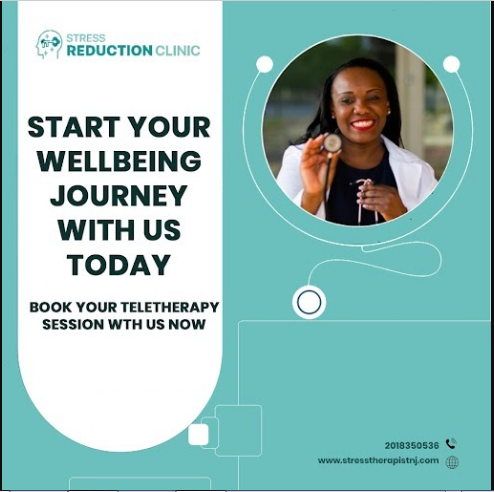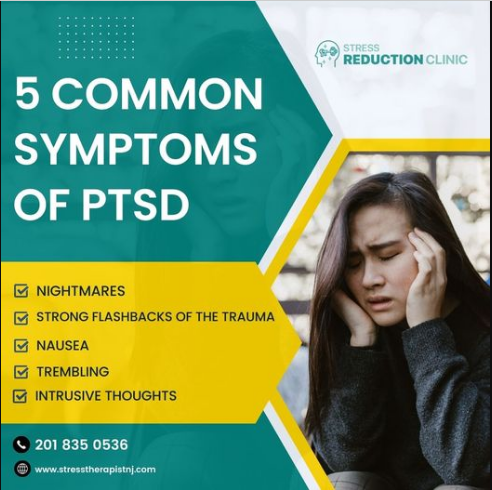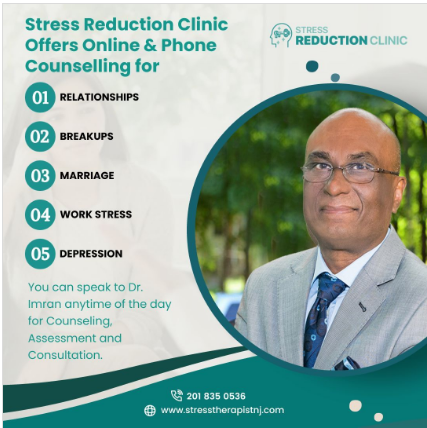Comprehensive Guide to Managing Anxiety and Depression from Stress Therapist NJ

Anxiety and depression are two of the most common mental health disorders affecting millions of people worldwide. These conditions can significantly impact an individual’s quality of life, leading to challenges in daily functioning, relationships, and overall well-being.
Stress Therapist NJ is a leading provider of mental health services, specializing in the treatment of anxiety, depression, and post-traumatic stress disorder (PTSD). This guide explores various therapeutic approaches, treatment options, and practical advice for managing these conditions.

Understanding Anxiety and Depression Treatment in NJ
Anxiety is characterized by excessive worry, fear, and nervousness. Common symptoms include restlessness, rapid heartbeat, and difficulty concentrating. Anxiety and depression treatment can manifest in various forms, such as generalized anxiety disorder (GAD), social anxiety, and panic disorder.
Depression is marked by persistent feelings of sadness, hopelessness, and a lack of interest in activities once enjoyed. Symptoms often include fatigue, changes in appetite, sleep disturbances, and difficulty making decisions. Depression can vary in severity and duration, affecting every aspect of a person’s life.
Both conditions can coexist, creating a complex interplay that exacerbates symptoms and complicates treatment. Understanding the nuances of these disorders is the first step toward effective management and recovery.

Post-Traumatic Stress Disorder (PTSD) Therapy
PTSD is a mental health condition triggered by experiencing or witnessing a traumatic event. Symptoms include flashbacks, nightmares, severe anxiety, and uncontrollable thoughts about the event. Post-traumatic Stress Disorder therapy can lead to significant impairment in social and occupational functioning. Early intervention and appropriate treatment are crucial for managing PTSD effectively.
Therapeutic Approaches to Treatment
Cognitive Behavioral Therapy (CBT) CBT is a widely used therapeutic approach for treating anxiety and depression. It focuses on identifying and challenging negative thought patterns and behaviors. Techniques such as cognitive restructuring, exposure exercises, and behavioral activation help individuals develop healthier coping mechanisms.
Exposure Therapy for PTSD Exposure therapy involves gradually confronting feared situations or memories in a controlled environment. This process helps reduce the power of trauma-related triggers and alleviates PTSD symptoms over time.
Dialectical Behavior Therapy (DBT) DBT therapy in NJ combines cognitive-behavioral techniques with mindfulness practices. It is particularly effective for individuals with severe emotional dysregulation, teaching skills to manage distress, improve relationships, and enhance emotional stability.
Eye Movement Desensitization and Reprocessing (EMDR) for PTSD EMDR is an evidence-based therapy designed to alleviate distress associated with traumatic memories. Through guided eye movements, individuals process traumatic experiences, reducing their emotional impact and fostering healing.
Medication Management
Medications can play a vital role in managing anxiety, depression, and PTSD. Antidepressants, anti-anxiety medications, and mood stabilizers are commonly prescribed to alleviate symptoms. It is essential to combine medication with therapy to address the underlying causes of these conditions and achieve optimal results. Consulting with a psychiatrist or a qualified healthcare provider ensures appropriate medication management.
Holistic and Alternative Therapies
Holistic approaches to mental health emphasize the connection between mind, body, and spirit. Techniques such as mindfulness meditation and deep breathing exercises promote relaxation and stress reduction. Regular physical activity and a balanced diet contribute to overall well-being, enhancing the effectiveness of traditional therapies. Alternative treatments like acupuncture and yoga offer additional avenues for managing anxiety and depression.

Finding the Right Therapist in NJ
Choosing a therapist who specializes in anxiety, depression, and PTSD is crucial for effective treatment. Here are some tips for finding the right therapist:
Research Credentials: Look for licensed therapists with experience in treating these specific conditions.
Seek Recommendations: Ask for referrals from healthcare providers, friends, or family members.
Initial Consultation: Schedule a consultation to discuss your needs and gauge the therapist’s approach and compatibility.
Ask Questions: Inquire about their experience, treatment methods, and success stories.

FAQs
- What is the difference between anxiety and depression?
Anxiety involves excessive worry and fear, while depression is characterized by persistent sadness and lack of interest. They can coexist and exacerbate each other’s symptoms.
- How long does therapy for anxiety and depression usually take?
The duration of therapy varies based on individual needs and treatment goals. It can range from a few months to several years.
- Can PTSD be completely cured?
While PTSD may not be completely curable, effective treatment can significantly reduce symptoms and improve quality of life.
- What are the side effects of medications for anxiety and depression?
Common side effects include nausea, weight gain, and sleep disturbances. It is important to discuss potential side effects with your healthcare provider.
- How can I support a loved one dealing with these conditions?
Offer emotional support, encourage professional help, and educate yourself about their condition to provide better understanding and empathy.
- What should I do if I feel my therapy isn’t working?
Communicate your concerns with your therapist. Adjusting the treatment approach or seeking a second opinion may be necessary.
- How do I know if I need professional help for my anxiety or depression?
If symptoms interfere with daily life, relationships, or work, it is important to seek professional help for proper diagnosis and treatment.

Conclusion
Managing anxiety, depression, and PTSD requires a comprehensive approach tailored to individual needs. Stress Therapist NJ offers expert care and a range of therapeutic options to support mental health and well-being. Seeking treatment is a crucial step toward recovery and a healthier, more fulfilling life.